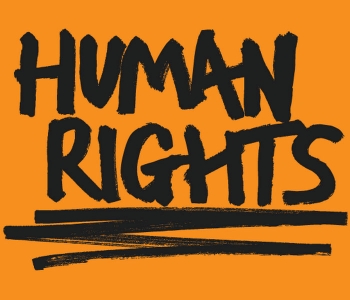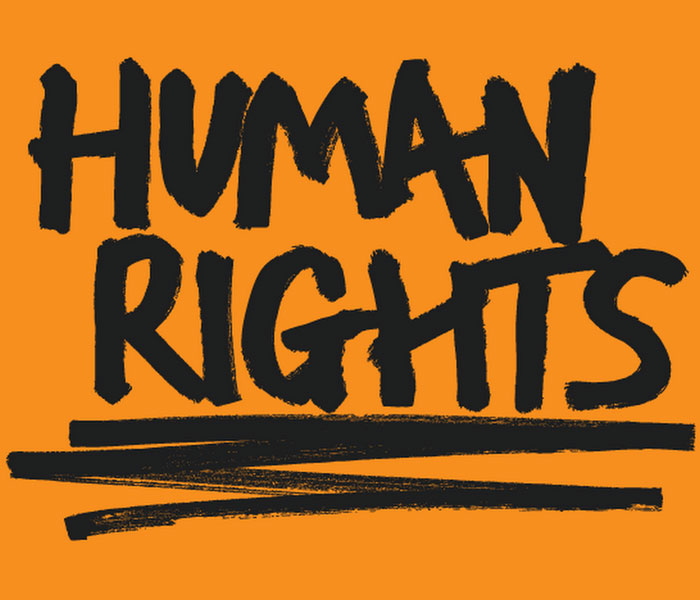
.png) Pauly Muricken
Pauly Muricken

Human Rights Day was celebrated this year in the midst of Covid-19 pandemic and the theme particularly chosen by the UN on the occasion was to “Recover Better-Stand Up for Human Rights’.
The theme is unique, motivational and captivating for the reason that it focuses on bridging the gap in the sphere of human right protection by exhorting nations to take measures for ending all forms of discrimination, addressing inequality, encouraging participation and solidarity and promoting sustainable development.
It has particular application for the country in the context of sporadic rise of human rights violations.
Human Rights for Orderly Progress:
Reverence for the nobility of a human being is the corner-stone of a body politic that believes in orderly progress. The essence of human dignity is not a momentary spark of light or a brief candle or a hollow bubble. Rather, it constitutes the core of all human rights. So much so, when dignity is lost, the breath of life gets into oblivion. What can be more important than dignity? Right to human dignity is available to all people-women, youth, minorities, persons with disabilities, indigenous people, migrant workers and the like. However, today their voices are seldom heard in public life and they are often neglected in political decision making.
Each year, the Human Rights Day marks the anniversary of the adoption of the Universal Declaration of Human Rights by the United Nations on December 10, 1948. The Declaration drafted by representatives of all religions and cultures have today become a landmark ex
Emergence of New Rights:
A close look at the past makes it clear that new rights are getting shaped and gaining acceptance within the ebb of human rights, such as the rights of the elderly; the right to the truth; the right to dissent, the right to a clean environment, water and sanitation; and the right to food. A growing consensus is emerging at the international scenario that business enterprises and corporate houses have also human rights responsibilities. The Vienna Declaration and Programme of Action, 1993 was the most significant and over-reaching human rights instrument evolved in the last few decades and its ringing endorsement marks a watershed moment in the history of human rights.
It is a fact that people have now become increasingly conscious of their rights. The ongoing farmers’ strike is an obvious example of such strong conviction and thinking. They decided time had come to assert their rights. They took to the streets and demanded change. Many found their voices using the social media platforms to inform, inspire and mobilize supporters to seek their basic human rights. This helped activists to organize peaceful protest movements and made ordinary people become human rights activists.
Violations Within:
Though we claim to be the world’s most populous democracy with a vibrant media, active civil society and a respected judiciary, we are confronting significant human rights problems within the country, which include child labour, bonded labour, sexual harassment of women, atrocities perpetrated against Dalits, problems faced by nomadic and notified tribes, deprivation of the rights of the disabled, health issues arising from HIV/AIDS, inadequacy of relief measures in respect of victims of natural disasters, distorted population policy. Added to this, custodial killings, police abuses including torture, failure to implement policies to protect vulnerable communities evidences the continuity of the trends exhibited in the past.
Infringement on women’s rights continues unabated. Our census data revealed a further decline in India’s female/male sex ratio, pointing to the failure of laws aimed at reducing sex-selective abortions. A series of rape incidents rocked the country in the recent past, but there has been no effective action to prevent such violations. The government is yet to improve health services for survivors of sexual assault. Despite considerable progress on maternal health, vast disparities still remain and a spate of maternal deaths continues to be reported.
Poverty : The Gravest Challenge:
Poverty prevails as the gravest human rights challenge these days and combating it is not a matter of charity. Poverty is a cause and a product of human rights violations. Often people whose rights are denied, the victims of discrimination or persecution are more likely to be poor. They have little access to basic services and resources. Poor people cannot enjoy their rights to education, health and housing simply because they cannot afford them. Poverty can affect all human beings. Yet poverty is rarely seen through the lens of human rights. Our fight against poverty should not be seen as a mere aspiration, but a duty for the realization of human rights.
Lack of Social Awareness:
Human Right consciousness is yet to achieve its full realization. Women across the country continue to face discrimination and violence. Crime statistics show that offences against women are on the rise in India. Of these, most were cases of rape, kidnapping, sexual assaults, dowry deaths and so on. Despite existence of laws banning child abuse, dowry and gender-based abortion, these crimes thrive at an alarming rate, obviously due to the apathy of the law enforcement agencies. Government also fails to evolve proper schemes to rehabilitate the victims of child abuse. Female foeticide is also remaining as a major social problem despite family planning awareness programmes.
Human right violations in the form of use of third degree methods and torture committed by the men in uniform are also on the rise, showing how protectors of rights and freedoms turn to be abductors. Though we feel proud of living in a civilized society, the incidences of custodial deaths demonstrate the brutalization of the process of law enforcement by the police and armed forces.
Neglected Claims of Forest Dwellers:
Our Nation State has proven to be slow in recognizing the rights of the forest dwellers to reside in forests and of those dependent on forest produce to have access to forest. This indicates the need to recognize a more symbiotic relationship between the forest and the dweller, in the midst of State policies being inimical to the continuance of the forest dweller within the forest. Equally important is to ensure a just settlement of their rights and interests in the wake of attempts to pauperize them and to denude the forest. The rights of the tribal population to livelihood, culture, habitat, security and shelter should not also go unnoticed. Though loss and deprivation of tribal land through alienation is restricted by law, often beneficiaries of such alienation are settlers who are themselves socially and economically marginalized and requiring protection from expropriation.
Pavement dwelling and homelessness are, of course, serious human right concerns nowadays. Eviction has serious repercussions on the right to shelter, land and livelihood. However, establishing and creating slums has at times turned to be a good business and is well organized. Large areas of public land are usurped for private use free of cost. The promise of free land at the taxpayer’s cost attracts land grabbers to turn as slum dwellers.
Renaissance though Development:
Human rights are legitimate claims and they have become an integral part of development policy and programmes. Development, security and human rights are imperative, interdependent and mutually reinforcing. So much so, human rights contribute directly to the objectives pursued in the areas of good governance. The crying need of the hour is to integrate human rights into development, for which a lot more requires to be done. State has an obligation to respect, protect and fulfill these rights. State also needs to develop an enabling environment by ensuring freedom from fear and discrimination. This can be made possible only by creating mass awareness and by imparting human rights education and training. After all, rights survive by the eternal vigilance of her citizens.
Sustainable Development is the minimum guarantee for people and the universe. It cannot be achieved without addressing poverty, inequality and climate change and without establishing peace and justice. We must erase hunger, ensure good health and well-being, provide quality education to children and enforce gender equality. For this, a new social contract heralding a new era based on human rights, the 2030 Agenda and the Paris Climate Agreement should remain as the central golden thread guiding all core State actions and recovery measures.
(The Writer is a Lawyer at the High Court of Kerala and a legal Academic and Researcher based at Kochi)